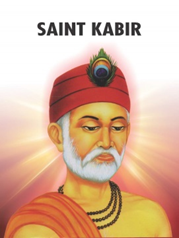

Context
President Ram Nath Kovind inaugurated the Sant Kabir Academy and Research Centre Swadesh Darshan Yojana and paid tribute to the Bhakti saint, Kabir at Maghar (Uttar Pradesh) recently.
About
Saint Kabir Das:
- He was born in Varanasi and lived between the years 1398 and 1448.
- He was from a community of ‘lower caste’ weavers of the Julaha caste, a group that had recently converted to Islam.
- Kabir’s beliefs were deeply radical, and he was known for his intense and outspoken voice which he used to attack the dominant religions and entrenched caste systems of the time.
- He composed his verses orally and is generally assumed to be illiterate.
- The Bijak contains works attributed to Kabir and is argued by historians to have been written in the 17th century.
- Kabir’s compositions can be classified into three literary forms –
- dohas (short two liners),
- ramanas (rhymed 4 liners),
- sung compositions of varying length, known as padas (verses) and sabdas (words)
- Several of Kabir’s verses and songs form a vital part of the Guru Granth Sahib.
- Compiled in 1604, the text is the oldest written collection of Kabir’s work.
- Kabir’s teachings continue to shape various religious discourses in India today. In the Sikh tradition he is seen to have influenced Guru Nanak, for Hindus he is a Vaishnavite (devotees of Vishnu), and is revered by Muslims as a Sufi saint.
- In the Dabistan of Mohsin Fani and Ain-i-Akbariof Abul Fazl, he is mentioned as a muwahid or believer in one God.
- Kabir’s ultimate goal was one absolute God who is formless, without attributes, who is beyond time and space, beyond causation.
- Kabir’s God is knowledge, bliss.

- Kabir’s God is knowledge, bliss.


